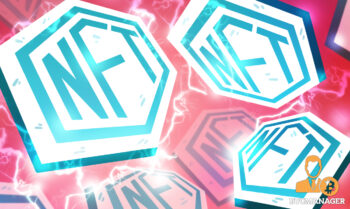2021-9-30 18:28 |
Non-fungible tokens (NFTs) emerged as a cultural storefront of the crypto sphere last year, and now institutional investors are following the so-called millennials and generation X into the space.
“The influx of institutional investors in the blockchain and crypto industry is inevitable,” Ryan Wilkinson, co-founder of athlete NFT ecosystem Blockasset, said in an interview with Beincrypto.com.
NFTs brought up novel possibilities in the curation and circulation of art and swayed fascinated endorsements from pop celebrities. Nike, Sony, and Disney are some of the institutions leading the way as mainstream players harness the rock star appeal of the next-generation technology.
While cryptocurrencies rode on the cypherpunk politics of undercutting surveillance and financial exclusion, NFTs’ decentralized approach to ownership of digital creative content and technological innovation are a more specifically youth-driven blockchain pitch.
Wilkinson says the non-fungible token market is developing much in the same way as did decentralized finance (DeFi) in 2020, with the sub-population groups of millennials and generation X driving growth. Nearly 50% of millennials reportedly hold a digital asset.
“The meteoric rise of defi…continues today as more people realize that it is better to invest their money in this space than in a bank deposit that can barely cope with inflation,” Wilkinson said.
“However, in the beginning, defi did not have such widespread recognition as it is now, and the same can be said about NFTs,” he added, pointing out mainstream endorsements of NFTs by Snoop Dogg and Gary Vaynerchuk.
He also cites Visa’s recent $150,000 purchase of a Cryptopunk NFT as “a meaningful sign of acceptance” that will draw buy-in from other institutional investors, who, until now, may have regarded similar assets as “speculative”.
A non-fungible token is an immutable and unique unit of data stored on the blockchain. NFTs can be used to represent items such as photos, videos, audio and other types of digital files.
NFT PatentsIn a new report, research firm Global Data notes the entrance of institutional investors into the NFT space to better commercialize their patents. Global Data principal disruptive tech analyst Kiran Raj explains in a statement:
While the patents filing trend in the NFT space is continuing for a while now, things get more interesting on the use of NFTs to represent patents which can bring transparency and liquidity to the global IP market that is often challenged by a huge gap between patent filings and commercialization.
“Real-life use cases are critical for NFTs to sustain growth beyond the hype. The use of NFTs to represent patents is one such that can boost the future of NFTs as it can be a game-changer in the IP industry by bringing transparency and providing liquidity that is otherwise sitting on a company’s balance sheet,” Raj added.
Traditionally, opacity in matters of ownership and lack of standardized management and evaluation of assets have limited IP transactions, with $1 trillion in intellectual property never transacted, according to IP specialist IPwe. The blockchain-powered transparency of non-fungible tokens is attractive to institutional players coming into the space.
“NFTs can aid in better patent commercialization when one owns the patent as an NFT, given their blockchain-powered properties of immutability and provenance. They can provide complete ownership to the patent holder once the patent rights are transferred,” Global Data reports.
In July, Disney filed a patent to use blockchain to manage and track the ownership of physical objects such as toys, pins, collectible figurines, and trading cards and their digital counterparts in the form of NFT.
By designing patents as an NFT, the licensing of each patent can be tailored by custom coding the records into smart contracts and contract terms. It is beneficial for companies, especially small and medium enterprises, as it allows IP to be treated as collateral of an organization’s value to seek funding.
Cultural ShiftEmil Angervall, chief operating officer and co-founder of Corite, a platform that enables fans to invest in artists, projects a new cultural use case for NFTs as a decentralized way to publish and earn from music rights. He told Beincrypto.com that:
Music and artists have the ability to deliver the key components of a valuable NFT: they are collectibles, similar to original vinyl pressings, and they can provide larger than life experiences, such as getting backstage.
According to Angervall, NFTs are a potential game changer for the $16 billion-dollar music industry, as the technology opens up decentralized ways to finance music projects for both institutional investors like Visa and the crowd of fans.
“Once more institutional investors see the potential in this space, the fundamental changes in the music and creative industry will accelerate. NFTs could potentially become as important to Gen Z as videos were during the MTV heyday of the 90s, which will undoubtedly attract institutional investors,” he said.
Global NFT sales peaked at more than $2.8 billion on Sept. 6 but since slowed to $1.8 billion by Sept. 29, according to data from nonfungible.com.
What do you think about this subject? Write to us and tell us!
The post Institutional Investors Follow Millennials, Generation X Into NFTs appeared first on BeInCrypto.
origin »Bitcoin price in Telegram @btc_price_every_hour
New Year Bull (NYB) на Currencies.ru
|
|
